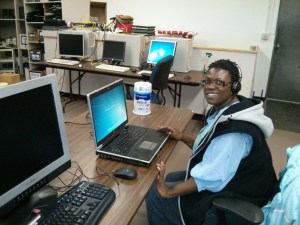 What’s in a name? CRNA, AA, Nurse Anesthetist or Anesthetist?
What’s in a name? CRNA, AA, Nurse Anesthetist or Anesthetist?
Warning! The pristine patient safety record that certified registered nurse anesthetists (CRNAs) have historically achieved is at risk. Currently all reputable studies show; there is no difference in patient outcomes when CRNAs provide care to patients individually vs. CRNAs who provide care under the medical direction of an anesthesiologist, (Department of Health, 2005), (Dulusse & Cromwell, 2010), and (Newhouse, et al., 2011). Nowhere in these studies does it measure patient safety outcomes when utilizing Anesthesiologist Assistants (AAs). The publicized outcomes of these patient safety studies has been the primary reason why states are permitted to “opt-out” of the CMS requirement for CRNA supervision when billing for Medicare part A. Therefore, it is imperative that all data that is recorded in the patient electronic medical record be entered accurately and consistently when documenting the title or category of the healthcare provider performing the care.
Increasing numbers of hospitals and surgery centers have implemented some version of electronic medical record system to facilitate participation in health information exchange. While this is an important step in enabling providers to access and review their patient’s pertinent health information, it is also a powerful tool for reporting evidenced based outcomes. With that in mind, it is imperative that the EMR/EHR systems include the ability for each provider to be categorized separately and consistently. Otherwise, the data used for reporting outcomes will be compromised, leading to inaccurate conclusions, and potentially dangerous policy.
In the past two weeks we have encountered several instances in which different providers were lumped together in a single category when anesthesia services were recorded. One in particular involved a large, multi-location hospital in the Kansas City area. This hospital was in the process of training providers to utilize the new EMR software. During the training, one of the CRNAs tried to locate the field that correctly identified him as a CRNA but the software only offered either a combined field that listed AA/CRNA or the remaining field choice, Anesthesiologist. Neither of these is correct or accurate.
The effects of lumping different providers into a single category are:
1. Distinction between CRNA and AA is blurred
2. Integrity of the data is compromised
3. Evidenced Based Safety Outcomes results are inaccurate
4. Compromised CRNA safety record
In addition, we have recently encountered multiple bills in the Missouri House and Senate that if passed will require the adoption of some form of cloud based health information exchange. All these bills contain confusing, ambiguous, and inconsistent definitions of Health Care Providers, such as “nurse anesthetists” and “anesthetists” which refer to CRNAs and AAs respectively. Referring to AAs as anesthetists could blur the distinction between the two providers.
In current laws and statutes, the term anesthetist has referred to CRNAs for decades, if not centuries. CRNAs and AAs are entirely separate providers with completely different training, education and experience. CRNAs have an extensive healthcare background and a pristine patient safety record. CRNAs have a bachelor’s degree in nursing, several years’ experience in intensive care performing direct patient care as a registered nurse, and a Master’s Degree and or Doctoral Degree specializing in anesthesia. CRNAs are also Advanced Practice Registered Nurses (APRNs) and are certified by a nationally recognized certifying body. CRNAs are qualified to make independent judgments and are able to practice without an anesthesiologist in all aspects of anesthesia. In many states, CRNAs are completely independent of any physician supervision. CRNAs are able to bill Medicare, insurance companies and patients directly, and receive direct reimbursement for their services. CRNAs have been providing care for over 150 years and have had many years to establish this incredibly high patient safety record. In fact, there are approximately 32 million anesthetics administered to patients every year by CRNAs (Missouri Association of Nurse Anesthetists, 2011).
AAs, on the other hand, have only been providing service for approximately 45 years. There has been inadequate time and inadequate patient volume to establish a proven safety record, whether good, bad, or otherwise. Because of this, it is important to be vigilant and mindful when entering the title/credentials of the medical professional providing the care in order to maintain the sterling reputation of our profession and the integrity of our patient safety record. I prefer the CRNA safety record to accurately continue to reflect, as it should, to only those services provided by CRNAs. Marketing companies focus on the term “Branding” when trying to promote a product or service. In the business industry, the best way to promote an inferior product is to make the product “seem” like it is the same as an established, superior product. So long as the public thinks it is the same, they will think they are getting a good deal. CRNAs are in danger of losing our branding. By merging our profession with that of another, we risk diluting our safety record and could soon be perceived by the public, and the policy makers, as the same.
As CRNAs, what can we do to promote and protect our own professional branding?
- Be vigilant. As our hospitals and surgery centers begin to implement EMRs, we need to ensure our designated provider field lists only CRNA and not nurse anesthetist, not anesthetist, and certainly not AA or any combination thereof. If you see this and cannot get it changed, then inform your state association of the AANA.
- Introduce yourselves appropriately to everyone as Certified Registered Nurse Anesthetists, or CRNAs. Politely correct anyone who might incorrectly refer to you as tech, an anesthetist, a nurse without qualifying your advanced degree, or even a nurse anesthetist.
- Support your state association and get involved. There are diplomatic methods to educate our co-workers without appearing combative in the workplace.
- Get proactive at the federal CMS level and spearhead requirements for
specific roles/titles of providers when submitting claims involving
PQRI on the CMS EMR. There will soon be emerging standardized form fields for reporting data consistently in these health information exchange software programs.
If we could be at the table so to speak with the programmers working through CMS, Medicaid expansion, and the ACA, we would be in a position to protect THE INTEGRITY OF OUR DATA SUBMISSION and our specific practice. It’s imperative we lead the initiative. Otherwise we will be swallowed up in the system. Goodness knows, we saw first-hand with the ACA “roll-out” how well the initial programming went!
Most importantly, remember who we are and be proud of our profession. Be willing to educate others about our practice. Let’s work together to develop a pragmatic approach to ensuring our provider designation remains intact. This is our Practice! Let’s get busy taking care of it! Feedback is welcome.
References
Dulisse, B. & Cromwell, J. (2010). No harm found when nurse anesthetists work without supervision by physicians. Health Affairs, 29 (8).
Newhouse, Stanik-Hutt, J., White, K. M., Johantgen, M., Bass, E. B., Zangaro, G., et al. (2011). Advanced Practice Nurse Outcomes 1990-2008: A Systematic Review. Nursing Economic$, 29(5), 230-251.
Newhouse, R., Stanik-Hutt, J., White, K. M., Johantgen, M., Bass, E. B., Zangaro, G., et al. (2011). Advance Practice Nurse Outcomes 1990-2008: A Systematic Review. Nursing Economic$, CNE Series, 21.

 measuring and assessing health care quality;
measuring and assessing health care quality;




 Time With Company: Since August 2009
Time With Company: Since August 2009 What Does Jenny Do in Her Spare Time?
What Does Jenny Do in Her Spare Time?


 Happy Valentine’s Day from Excel Anesthesia! It is finally getting warmer in Kansas City, so we hope that you take advantage of the opportunity to go out for a nice dinner or evening on the town with the important people in your life.
Happy Valentine’s Day from Excel Anesthesia! It is finally getting warmer in Kansas City, so we hope that you take advantage of the opportunity to go out for a nice dinner or evening on the town with the important people in your life. 
 Time With Company: Since April 2013
Time With Company: Since April 2013 CRNAs are the core of Excel’s business. We are often asked, “What exactly is a CRNA?”. The acronym is not commonly known outside the healthcare industry, but if you’ve ever had a medical procedure requiring anesthesia, there’s a good chance that you’ve taken advantage of CRNA services.
CRNAs are the core of Excel’s business. We are often asked, “What exactly is a CRNA?”. The acronym is not commonly known outside the healthcare industry, but if you’ve ever had a medical procedure requiring anesthesia, there’s a good chance that you’ve taken advantage of CRNA services.